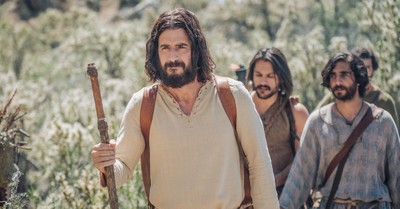"Fear of God": A Sermon by Pastor Bob
- Updated Nov 13, 2011
(Here is the sermon for this morning by my friend, Pastor Bob. If you like it, please share it with others. I know it means a lot to Pastor Bob to, in this small way, bring something of church to those who, for whatever reason, won't themselves be going today.)

Fear of God
A sermon by Pastor Bob
November 13, 2011 Text: Matthew 25:14-30
Matthew 25:14-30
“Again, it will be like a man going on a journey, who called his servants and entrusted his wealth to them. To one he gave five bags of gold, to another two bags, and to another one bag, each according to his ability. Then he went on his journey. The man who had received five bags of gold went at once and put his money to work and gained five bags more. So also, the one with two bags of gold gained two more. But the man who had received one bag went off, dug a hole in the ground and hid his master’s money.
“After a long time the master of those servants returned and settled accounts with them. The man who had received five bags of gold brought the other five. ‘Master,’ he said, ‘you entrusted me with five bags of gold. See, I have gained five more.’
“His master replied, ‘Well done, good and faithful servant! You have been faithful with a few things; I will put you in charge of many things. Come and share your master’s happiness!’
“The man with two bags of gold also came. ‘Master,’ he said, ‘you entrusted me with two bags of gold; see, I have gained two more.’
“His master replied, ‘Well done, good and faithful servant! You have been faithful with a few things; I will put you in charge of many things. Come and share your master’s happiness!’
“Then the man who had received one bag of gold came. ‘Master,’ he said, ‘I knew that you are a hard man, harvesting where you have not sown and gathering where you have not scattered seed. So I was afraid and went out and hid your gold in the ground. See, here is what belongs to you.’
“His master replied, ‘You wicked, lazy servant! So you knew that I harvest where I have not sown and gather where I have not scattered seed? Well then, you should have put my money on deposit with the bankers, so that when I returned I would have received it back with interest.
“‘So take the bag of gold from him and give it to the one who has ten bags. For whoever has will be given more, and they will have an abundance. Whoever does not have, even what they have will be taken from them. And throw that worthless servant outside, into the darkness, where there will be weeping and gnashing of teeth.’
--A salesman, driving on a lonely country road one dark and rainy night, had a flat.
--He opened his car trunk—no lug wrench.
--The light from a farmhouse could be seen dimly up the road.
--He set out on foot through the driving rain.
--Surely the farmer would have a lug wrench he could borrow, he thought.
--Of course, it was late at night—the farmer would be asleep in his warm, dry bed.
--Maybe he wouldn’t answer the door.
--And even if he did, he’d be angry at being awakened in the middle of the night.
--The salesman, picking his way blindly in the dark, stumbled on.
--By now his shoes and clothing were soaked.
--Even if the farmer did answer his knock, he would probably shout something like, “What’s the big idea waking me up at this hour?”
--This thought made the salesman angry.
--What right did that farmer have to refuse him the loan of a lug wrench?
--After all, here he was stranded in the middle of nowhere, soaked to the skin.
--The farmer was a selfish clod—no doubt about that!
--The salesman finally reached the house and banged loudly on the door.
--A light went on inside, and a window opened above.
--A voice called out, “Who is it?”
--His face white with anger, the salesman called out, “You know darn well who it is. It’s me! And you can keep you blasted lug wrench. I wouldn’t borrow it now if you had the last one on earth!”
--Someone once said that “Fear is the wrong use of imagination. It is anticipating the worst, not the best that can happen.”
--This is partly true.
--Fear does have a tremendous influence on our lives.
--It can motivate us—like a mother bear protecting her cubs.
--Or it can paralyze us—leaving us with a sense of helplessness.
--How we deal with our fears virtually shapes our reality.
--Like the salesman whose fear turns to anger.
--But in the case of our gospel reading this morning, we learn that how we understand fear can also shape how we relate to God.
--And if there is a driving question that runs through our text this morning it is:
--What does it mean to fear God?
--In our gospel text for today we directly encounter the fear of God in the parable of the talents.
--In this case God is represented as the master who has gone away on a journey.
--And as we reflect on this parable together we might think of the faith community Matthew is writing for.
--A community in which most of the people who directly witnessed the life of Jesus are gone; and a community which expects Jesus to come again any day.
--But year-by-year, this seems a distant promise---and as we sit almost 2000 years later, we know what such a wait can lead to.
--This community of faith Matthew is writing for is most likely becoming complacent.
--What does it mean to fear God, if Christ has not yet to come from heaven with the sky full of angels to judge a world and set things right?
--How are we to act while we wait?
--In the parable that Jesus tells, a very wealthy master has done a miraculous thing before taking his journey.
--He has entrusted his entire estate to three slaves---and in the process he turns their whole world upside down.
--To one slave he gives the enormous sum of five talents.
--It is enormous because one talent is worth 15 years of wages.
--He therefore entrusts this first slave with 75 years of wealth.
--To the second slave, the master likewise entrusts an enormous sum: two talents.
--And finally, to the third slave: one talent.
--The world of these slaves has been changed profoundly, for they have been given wealth beyond imagination and told to manage it while the master is away.
--They are however not told exactly how to manage this money, and they do not know when the master will return, if ever.
--What would you do if you were one of those slaves, particularly today?
--Invest it in a risky stock market, perhaps buying stocks in biotechnology, alternative energy sources or pharmaceutical companies?
--Or perhaps you would invest in very slow growth CD’s, bonds or IRA’s.
--Or if you really wanted to be risky and do what the slaves actually would have done, you might have invested in that most dangerous form of gambling: farming.
--My Grandfather was a gambler.
--In fact, one might say he was a compulsive gambler—it least that is what he called himself. And he lived in the heart of gambling in America.
--Not Las Vegas, but O’Neill, Nebraska.
--My grandfather was farmer, a dry-land farmer, who, unlike his brother-in-laws, farmed without irrigation, waiting expectantly for each rain to come so that his feed-corn would grow.
--I never knew quite what to say when Grandpa told me he was gambler.
--This white-haired man with one shoulder strap holding up his dirty overalls.
--He’d lost his thumb years ago cutting wood, and I can still see him gesturing with the stub.
--He surely did not look like any gambler that I could think of, but his words still make me ponder and smile.
--Perhaps the first or second servant was such a gambler, a farmer who invested these talents given to them. Or perhaps they invested in some other business enterprise.
--In any case, the first and second servants faced this new situation with its accompanying fear by exercising the gifts that had been given to them.
--And each doubled what they had been given.
--Five talents were turned to ten talents.
--Two talents to four.
--The third slave, however, faced his fears in a different way.
--In what seemed like a sensible decision, he decided not to deal with the money at all.
--So he dug a hole in the ground and hid all that he had been given.
--Out of sight, out of mind.
--It’s like the old story of the farmer who didn’t farm: --One day in July, a farmer sat on his front porch smoking his pipe.
--Along came a stranger who asked, “How’s your cotton coming?”
--“Ain’t got none,” was the answer. “Didn’t plant none. ‘Fraid of the boll weevil.”
--“Well, how’s your corn?”
--“Didn’t plant none. ‘Fraid o’ drought.”
--“How about your potatoes?”
--“Ain’t got none. Scairt o’ tater bugs.”
-The stranger finally asked, “Well, what did you plant?”
--“Nothin,” answered the farmer. “I just played it safe.”
--The third slave thought he was playing it safe too, until that fearful day came when the master returned from his long journey and settled accounts.
--To the first two slaves, the master praised them and told them that because they had been trustworthy in a few things, he would put them in charge of many things.
--Best of all, they would enter into the joy of their master.
--But when the master came to the third slave the master’s return brought not just fear, but terror.
--As it turned out, though all the slaves feared their master, the third slave’s fear had led him to only see the master as harsh.
--It was in this fear, this paralysis, that the third slave had not even given the money for someone else’s use, but only buried it.
--In his fear, in his anger, the third slave voiced his fearful image of his master: “I knew that you were a harsh man, reaping where you did not sow, and gathering where you did not scatter seed.”
--And with this image of his master, the slave’s excuse is simple: “I was afraid, and I went and hid your talent in the ground. Here, you have what is yours.”
--Like the salesman who meets the farmer with premeditated anger, the slave meets the master with accusation.
--And ironically, it is a self-fulfilling prophecy that the master’s actions become the slave’s worst nightmare.
--First the master takes away the money that had been given to the third slave.
--Then he amazingly gives it to the slave who now had ten talents.
--And finally he throws the slave into “the outer darkness, where there will be weeping and gnashing of teeth.”
--As we reflect on this parable, it is worth asking, “How do we deal with this fearful image of the master and ultimately of God?”
--One might be tempted to simply dismiss a fearful image of God in the first place. After all, God is loving and merciful.
--But God’s love and mercy need not dismiss our healthy fear of God.
--Not a paralyzing fear which immobilizes us like the third slave.
--But a healthy fear that prompts us to acknowledge that God is God—creator and sustainer of the universe.
--There is no other God but God—no other game in town—there is only God.
--And even though there are days when it appears that the master is away, it does not change the reality that God has given us everything, and is still master, still Lord.
--God does not cease to exist because there is not a burning bush in front of us, or a wriggling baby Jesus at our feet.
--The Holy Spirit sees to that.
--For it is the Holy Spirit that gives us eyes of faith to see the extravagance of the master’s gift in the first place.
--The master in our parable after all gives everything to his slaves.
--For us it is a gift worth more than 75 years of wages, or a hundred, or even a thousand years of earnings.
--It is the gift of the gospel.
--The gift in which God ultimately gives everything to us in the life, death and resurrection of Jesus.
--It is a gift worth risking it all for, worth literally dying for.
--But most importantly, it is a gift worth living for, and a gift worth sharing.


















